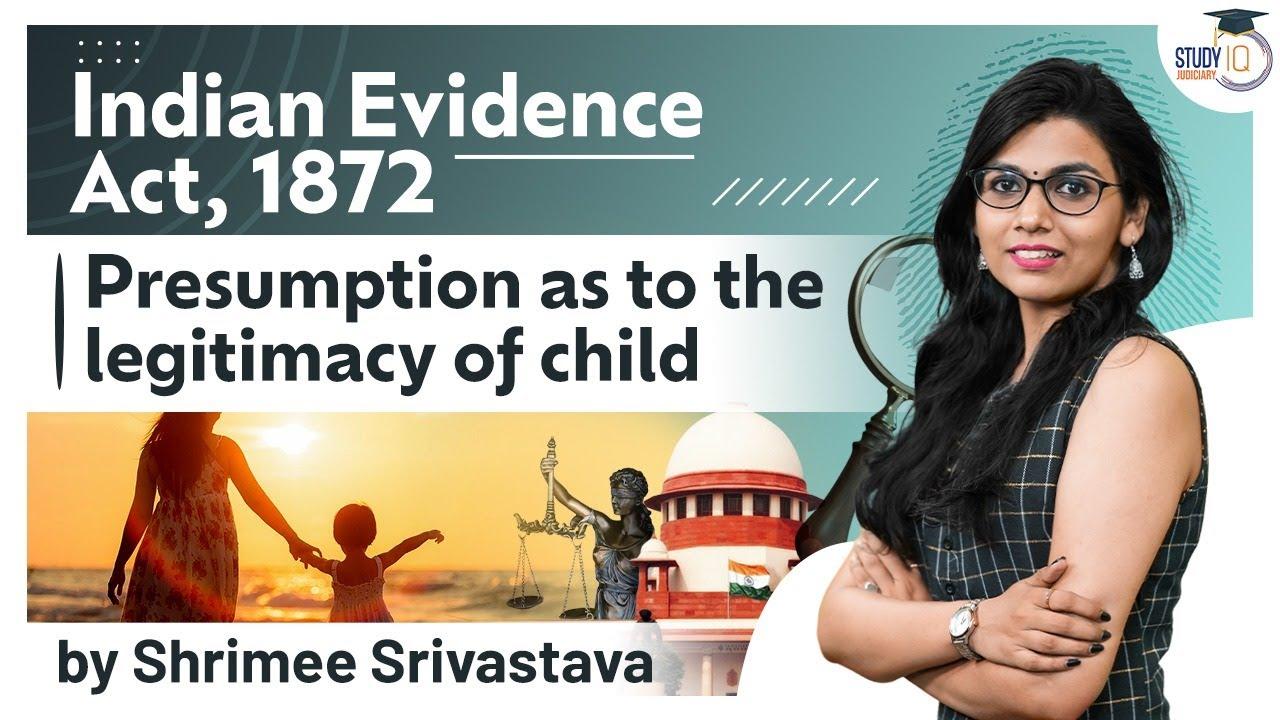Table of Contents
Presumption as to legitimacy of a child
Presumption as to Legitimacy
- Section 112 of the Indian Evidence Act, 1872 relates to the legitimacy of a child born during wedlock.
- The law presumes that if a child is “born during the continuance of a valid marriage between his mother and any man, or within two hundred and eighty (280) days after its dissolution, the mother remaining unmarried…”, it is conclusive proof of its legitimacy unless it can be proven that the parties to the marriage did not have any access to one another.
- The legislative spirit behind it is to establish that any child born during a valid marriage must be legitimate.
- The law does not presume dishonorable or immoral actions unless conclusive proof can be produced for the same.
- Therefore, section 112 is based on the presumption of public morality and public policy
Exception of “non-access”
- Section 112 of the Act provides a very limited exception to the presumption of legitimacy.
- A valid marriage may not be conclusive proof if it can be shown that the parties to the marriage had no access to each other during time of conception.
- This has to be proved beyond reasonable doubt and not just mere balance of probabilities
- However, one cannot completely disregard the possibility of such behavior, in which case the party disputing the paternity is being held unjustly accountable.
- The purpose of law is to provide justice in a fair and efficient manner.
- When moral principles become the basis for a law, it defeats this basic purpose.
Dna testing to ascertain paternity
- DNA Tests are conclusive evidence admissible under the Indian Legal System.
- The introduction of DNA technology, however, has faced extensive criticism and has been said to violate Article 21 (Right to Privacy) and Article 20(3) (Right Against Self-Incrimination) of the Indian Constitution.
Present legal scenario
- Before the law is criticized for not allowing DNA tests under section 112 of the Act when there exists a valid marriage, a question must be answered.
- Can the Court direct one of the parties to submit himself for the DNA test?
- The answer to this question can be traced through a series of judicial decisions.
Gautam Kundu v. State of West Bengal
- The Supreme Court held in this case that
- (a) Courts cannot order a blood test as a matter of course,
- (b) There should exist a prima facie case in that the husband must establish ‘non-access’ in order to dispel the presumption arising under section 112 before a test can be ordered, and
- (c) The Court should carefully analyze with respect to what might be the outcome of requesting the blood test; whether it will have the impact of marking a child as a bastard and the mother as an unchaste woman.
Download| Free PDF






















 WhatsApp
WhatsApp